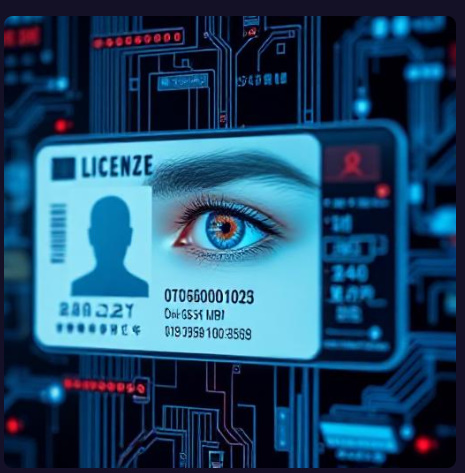
- Digital identity is being introduced into the world with hundreds of excuses
- One of them is to "combat money laundering"
- It is impossible to have privacy with a digital identity, because it is a system that constantly tracks people
- Digital identity will subject everyone to scrutiny.
- In reality, the population does not have the means to commit money-laundering crimes.
- This is further evidence that digital identity is being imposed under false pretenses.
- Furthermore, under the pretext of security, everyone is being turned into a potential criminal.
In financial technology, for years there has been continuous attempts to impose an absolutely oppressive tool: the digital identities.
Seemingly convenient, it promises to improve services and bring a new era of digital efficiency.
Digital identities are being imposed with various excuses, age verification, prevent identity theft fraud, fight against various types of crimes, fight against extremism, protection of content, as "key factor for financial inclusion," mobility, social security services, and also enforcement of the Anti-Money Laundering Laws (AML)
But from what little has already been proven, it has been highlighted that digital identities are fundamentally designed to erode privacy, transforming personal data into a private asset and a tool of perpetual surveillance and control.
In order to achieve such a goal, they seek to impose a system that constantly tracks and reviews each transaction, not only to prevent illicit activity, but to categorize, profile and monitor people in a way that is impossible to avoid
Every transaction monitored
If digital identities are used for this, then privacy becomes an illusion. The entire framework depends on linking personal information to transaction data, making it impossible for people to live with true anonymity.
Every move, every transfer, every financial interaction becomes part of a vast, interconnected network of data that authorities and corporations can access at any time.
It's not just about arresting criminals; it's about control and surveillance. The notion that ordinary people can "launder money" - to hide illicit funds - becomes almost laughable in this context.
The system is designed not to catch real criminals but to monitor and control everyone, because the very concept of privacy is incompatible with this level of surveillance.
Digital identity is linked to the real world person, so their privacy is sacrificed under the guise of transparency and security.
This is not just a simple digital credential; is the gateway to implementing widespread control over financial and personal data.
The United States Department of the Treasury is actively exploring the integration of government-backed digital identity verification (Digital ID) into decentralized finance platforms (DeFi) to combat illicit financial activities.
These credentials are expected to be used by smart decentralized financing services (DeFi) contracts, which would automatically verify a user's credential before executing transactions.
Risk ratings for cryptocurrency wallets
This sounds very similar to what institutions such as the Bank for International Settlements (BPI) want to achieve, qualifying individual cryptocurrency wallets for LMA compliance.
The BPI - an organization that apparently aims to regulate and oversee the global banking system - has expressed interest in assigning risk ratings to cryptocurrencies, essentially creating a financial history that can be easily reviewed during any transaction.
Why is it dangerous? It is because these measures eliminate the fundamental privacy rights that have historically protected people from unwarranted intrusions.
Once your cryptographic wallet or digital identity is qualified, tracked and tied to a personal profile, it becomes impossible to operate in the financial space without constant supervision.
It is not a question of preventing crime; it is about establishing a permanent state of vigilance that benefits institutions and governments at the expense of individual autonomy.
Digital identities cannot be imposed under any excuse
Moreover, the argument that these systems are necessary to combat the financing of terrorism is deeply false. Ordinary people do not have the means or motives to launder money on a large scale.
Money laundering, in its most basic form, requires sophisticated networks, resources and intent - factors that most people simply do not possess.
The vast majority of everyday users are not criminals, but they are being subjected to invasive monitoring systems, who treat them as possible criminals or, worse still, as potential criminals.
This criminalization of normal financial activity is a warning sign of a growing authoritarianism disguised as security.

Digital Identities for "Security" and the Threat to Personal Freedom
https://www.zerohedge.com/geopolitical/quiet-rebranding-cbdcs-digital-id
https://www.cryptopolitan.com/us-treasury-digital-id-verification/
https://www.worldbank.org/en/topic/paymentsystemsremittances
https://blogs.worldbank.org/en/psd/digital-id-critical-enabler-financial-inclusion
https://www.elibrary.imf.org/view/journals/001/2023/214/article-A001-en.xml
